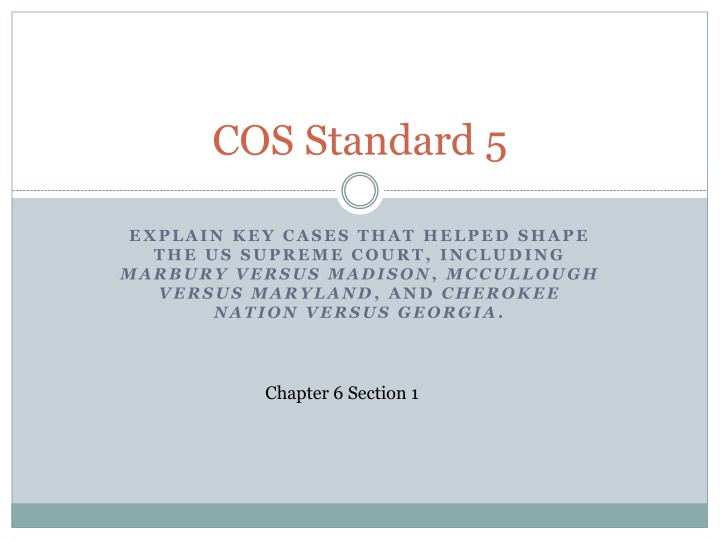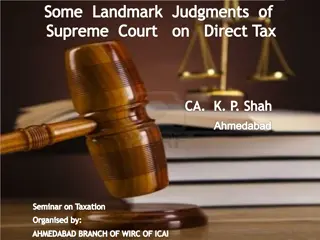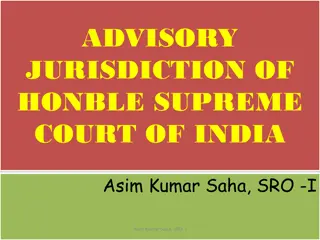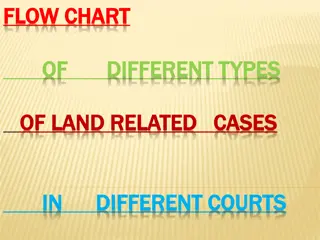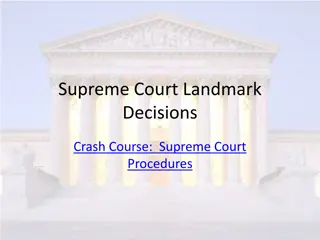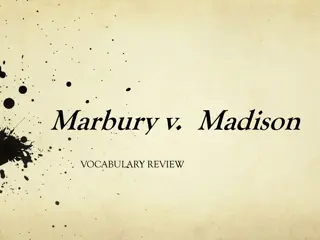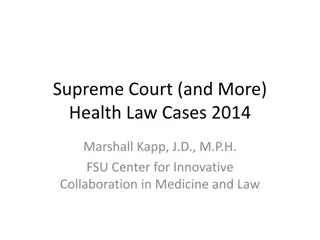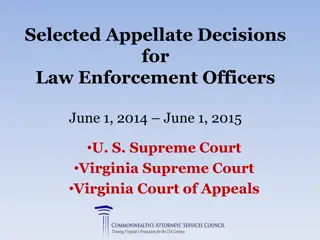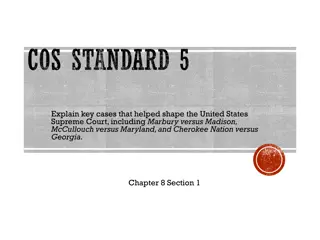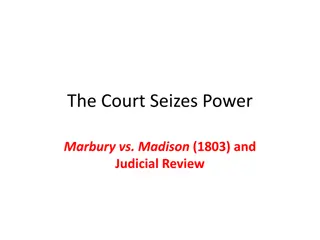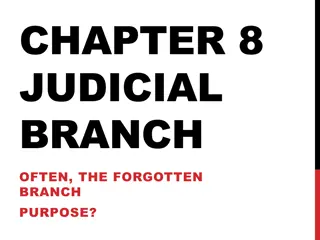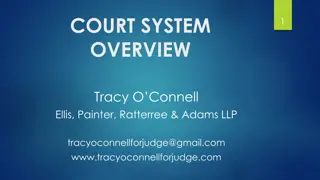Key US Supreme Court Cases: Marbury v. Madison, McCullough v. Maryland, Cherokee Nation v. Georgia
The landmark cases of Marbury v. Madison, McCullough v. Maryland, and Cherokee Nation v. Georgia significantly shaped the US Supreme Court. Marbury v. Madison established judicial review, McCullough v. Maryland clarified federal authority, and Cherokee Nation v. Georgia addressed tribal sovereignty.
Download Presentation

Please find below an Image/Link to download the presentation.
The content on the website is provided AS IS for your information and personal use only. It may not be sold, licensed, or shared on other websites without obtaining consent from the author.If you encounter any issues during the download, it is possible that the publisher has removed the file from their server.
You are allowed to download the files provided on this website for personal or commercial use, subject to the condition that they are used lawfully. All files are the property of their respective owners.
The content on the website is provided AS IS for your information and personal use only. It may not be sold, licensed, or shared on other websites without obtaining consent from the author.
E N D
Presentation Transcript
COS Standard 5 EXPLAIN KEY CASES THAT HELPED SHAPE THE US SUPREME COURT, INCLUDING MARBURY VERSUS MADISON, MCCULLOUGH VERSUS MARYLAND, AND CHEROKEE NATION VERSUS GEORGIA. Chapter 6 Section 1
Marbury versus Madison: background Thomas Jefferson wins the election of 1800. He takes office March 4, 1801, meaning John Adams is still president until then. Before leaving office, Adams fills these positions with Federalists. Adams passes The Judiciary Act of 1801: increased number of federal judges by 16 Midnight Judges The letters to the appointed had to be delivered before the end of Adams term.
Marbury versus Madison: background When they were not completely delivered on time, Jefferson and James Madison (Secretary of State under Jefferson) see the letters as void. When Jefferson takes office on March 4, he and the Republicans repeal the Judiciary Act of 1801. Midnight judges removed from office.
Marbury v. Madison William Marbury- appointed as a justice of the peace for the District of Columbia in Adams final hours Doesn t receive letter Marbury petitions that the Supreme Court issue a writ of mandamus to force Madison to issue the appointment
Key Players continued James Madison Thomas Jefferson
Marbury versus Madison Midnight Judge William Marbury sues James Madison so he will deliver the letter of appointment. Madison refuses. The case goes to the Supreme Court. John Marshall (Chief Justice of the Supreme Court) said the Judiciary Act of 1789, was unconstitutional because it gave the Supreme Court authority that was denied by the Constitution. The Judiciary Act of 1789 spelled out the practice of delivering commissions for judges
Key Players John Adams John Marshall William Marbury
Marbury versus Madison Thus, the Judiciary Act of 1789 was illegal. Significance of the Case: Sets up Judicial Review What is judicial review? Determining if a law is constitutional or not. If the law is unconstitutional, get rid of the law. It determines who will be the final authority when there is a need to interpret the Constitution. Sets up the power for federal courts to void acts of congress in conflict with the Constitution
